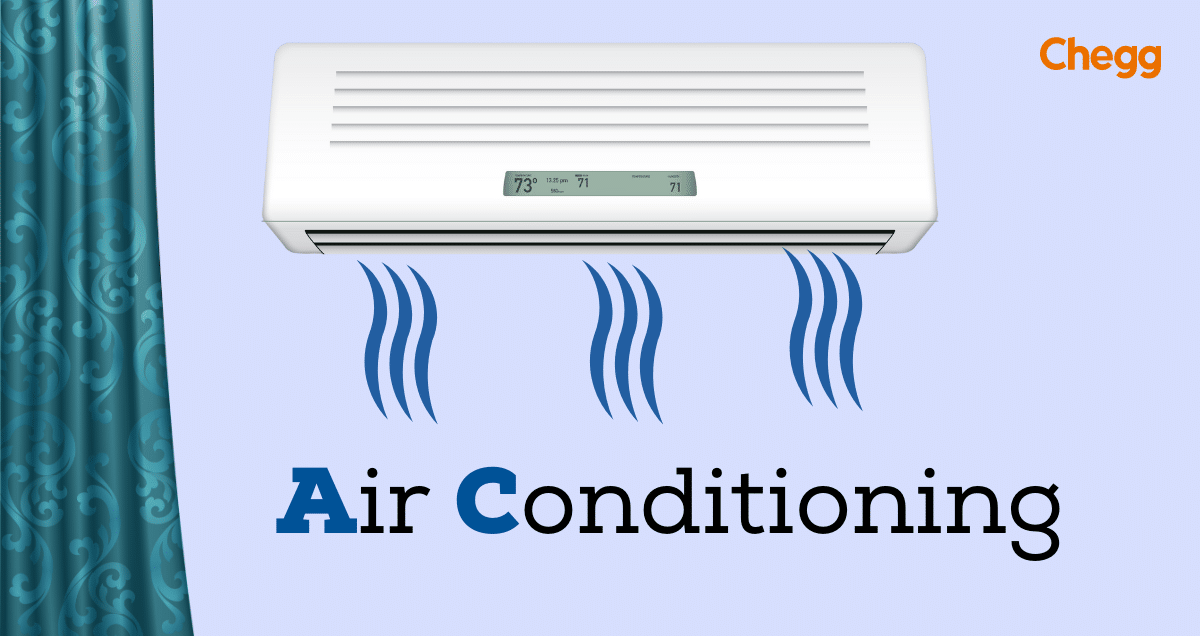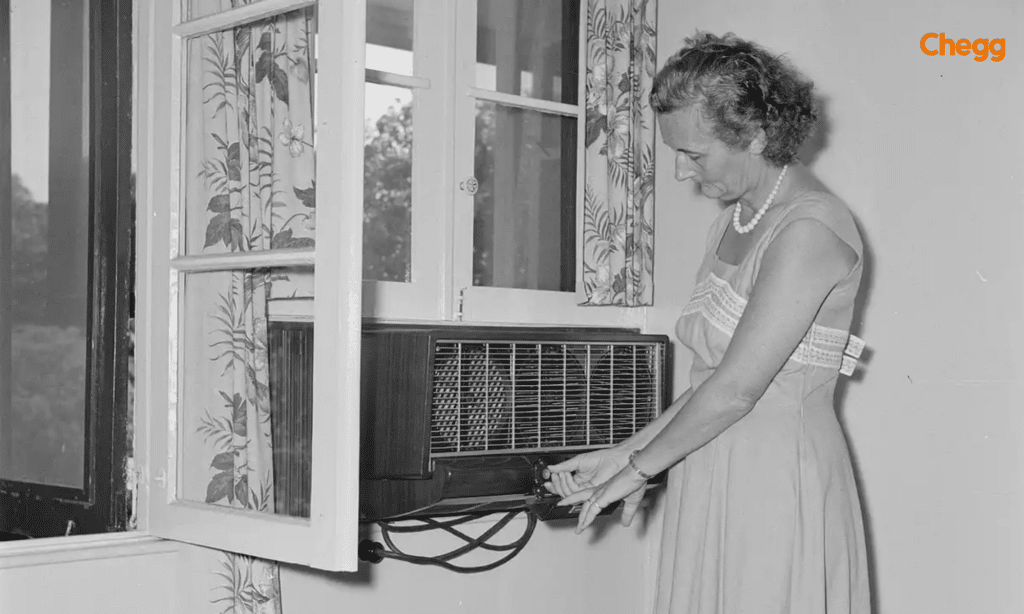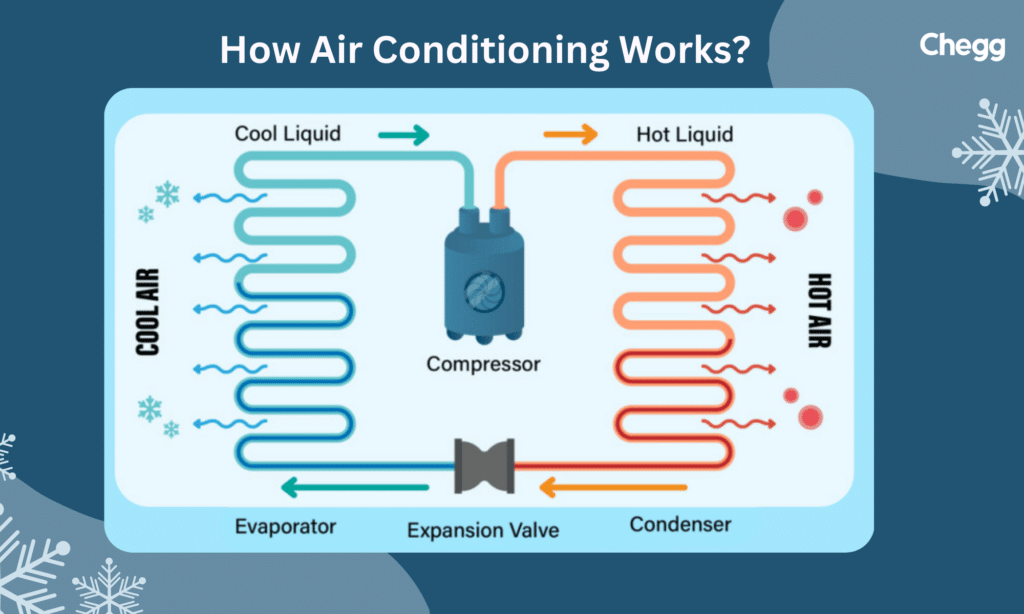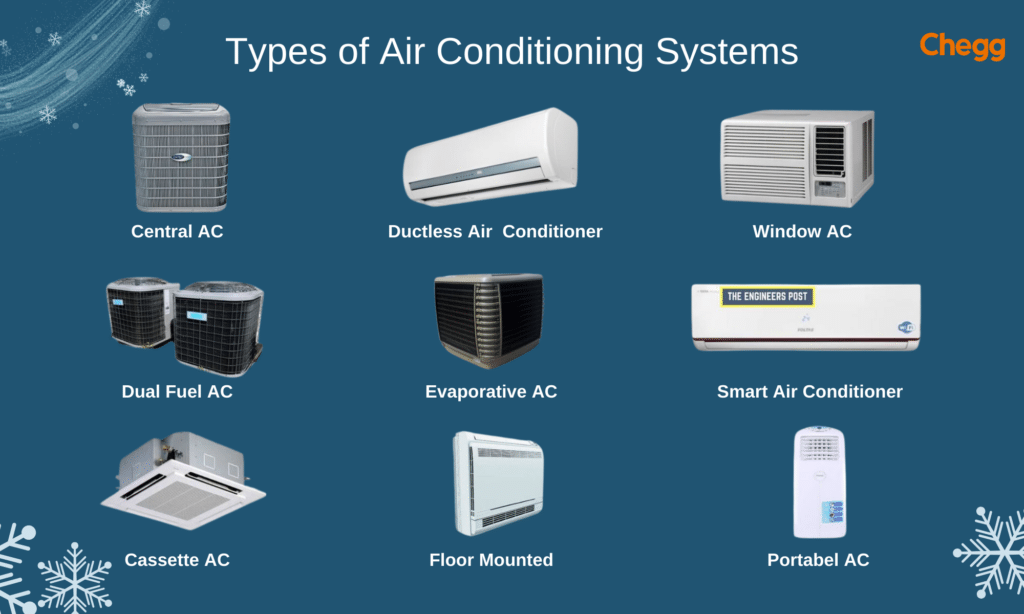Home » Full Forms » AC full form: Discovering the Joys of Modern Air Conditioning
AC full form: Discovering the Joys of Modern Air Conditioning

Table of Contents
AC Full Form
AC full form indicates Air conditioning (AC) that controls indoor temperature, humidity, and air quality. We rely on it for comfort and convenience. Air conditioners cool and control indoor air.
Air conditioning is vital to daily life for many reasons. It keeps the house cool in summer and extreme weather. Air conditioning filters pollutants, allergens, and odors, making indoor air healthier.
Creating a comfortable workspace or home boosts productivity and concentration. Air conditioning protects electronics and helps you sleep. It improves our health and quality of life.
Historical Evolution of Air Conditioning (AC)
Early Cooling Methods
The quest for cooling dates back centuries. Early civilizations combated heat with hand-operated fans, windcatchers, and building designs that maximized shade and airflow. Egyptians used dampened reeds for evaporative cooling.
Development of Modern AC
The AC full form is Air Conditioning. It was invented in the early 20th century. In 1902, the ‘Father of Air Conditioning’, Willis Carrier, invented the first mechanical air conditioning system. This refrigeration system cooled and dehumidified air. Carrier’s invention revolutionized air conditioning, making it a daily necessity.

How (AC) Air Conditioning Works?
Principles of Heat Transfer
Air conditioning operates based on the principles of heat transfer. It involves the transfer of heat from a space with a lower temperature (indoors) to a space with a higher temperature (outdoors). This is achieved through various processes, including conduction, convection, and radiation.
Components of an Air Conditioning System
An air conditioning system has several key components that provide cooling. These components include:
- Compressor: The compressor plays a crucial role in the refrigeration cycle. It compresses the refrigerant gas, increasing its temperature and pressure.
- Condenser: The condenser allows the hot refrigerant gas to dissipate heat to the surroundings. It cools and condenses the refrigerant, transforming it into a high-pressure liquid.
- Evaporator: The evaporator is responsible for absorbing heat from the indoor air. As the liquid refrigerant expands and evaporates in the evaporator coil, it absorbs heat, cooling the surrounding air.
- Expansion Valve: The expansion valve regulates refrigerant flow from the high-pressure liquid state to the low-pressure liquid state, allowing it to evaporate in the evaporator.

Types of Air Conditioning Systems
Here are four common types:
Window AC
Window AC units are compact and self-contained. They are all-in-one units. Window air conditioners cool small rooms and are affordable and easy to install.
Split AC
Split AC systems have indoor and outdoor units. The compressor and condenser are outside, while the evaporator coil and air-handling unit are inside. Split ACs are quieter, cooler, and can cool multiple rooms.
Central AC Systems
Central AC systems cool buildings or large spaces. A central cooling unit distributes cool air through ducts and vents. Central ACs provide space-wide cooling and are controlled centrally.
Portable AC
Portable AC units are easy to move. They vent hot air through windows or openings with a flexible exhaust hose. Portable ACs are useful for cooling small areas without permanent installation.

Benefits of AC
AC full form is Air Conditioning. Here are some key advantages:
Temperature and Humidity Control
The air conditioning ensures indoor comfort regardless of the weather. It also helps reduce humidity levels, prevent excessive moisture buildup, and create a more pleasant atmosphere.
Improved Indoor Air Quality
AC systems remove pollutants, dust, allergens, and odors. This improves indoor air quality, reducing respiratory issues and creating a healthier home.
Health Benefits
Air conditioning protects health by lowering temperatures. It prevents heatstroke and dehydration. Filtering air reduces allergens and irritants, helping respiratory patients.
Enhanced Comfort and Productivity
Air conditioning improves sleep, productivity, and relaxation. It improves focus, fatigue, and well-being, boosting work performance.
Applications of Air Conditioning
AC meaning clearly states that the device is used for cooling. Here are four primary applications:
Residential Air Conditioning
Air conditioning keeps homes and apartments cool and improves living conditions. It keeps relaxation, sleep, and daily activities cool and comfortable.
Commercial Air Conditioning
Air conditioning makes offices, retail stores, restaurants, and hotels comfortable for customers, employees, and guests. It improves customer satisfaction and the work environment.
Industrial Air Conditioning
Industrial air conditioning systems cool and control production areas. Maintaining equipment functionality, product quality, and employee comfort is crucial.
Automotive Air Conditioning
Auto air conditioning systems keep cars cool and comfortable. They cool the interior in hot weather, improving driver focus and passenger comfort.
Factors to Consider when Choosing an AC System
AC stands for Air Conditioning. Here are four key factors:
Cooling Capacity of AC
Cooling capacity depends on space size. Choosing an AC system with enough cooling capacity ensures efficient cooling without overworking the unit.
Energy Efficiency of AC
Choose energy-efficient air conditioners. Energy-efficient models reduce electricity use and environmental impact.
Noise Levels of AC
Consider AC noise. Quieter operation is preferred in homes and offices. To maintain peace, choose quiet AC systems.
Maintenance Requirements for AC
Understand AC system maintenance. Filter cleaning and replacement are necessary for optimal performance and longevity. Choose an AC system based on maintenance and cost.
Air Conditioning (AC) Innovations and Trends
Here are three notable trends:
Smart Air Conditioning Systems
Connectivity improves smart AC control and convenience. Users can adjust settings, monitor energy usage, and schedule cooling using smartphones or voice assistants. Smart ACs optimize cooling for occupancy and weather, saving energy.
Energy-Saving Technologies
Air conditioning now prioritizes efficiency. Variable-speed compressors, inverter technology, and intelligent sensors let AC units adjust cooling output to demand, saving energy. Insulation and airflow management boost efficiency.
Integration with Home Automation
Home automation ecosystems are integrating air conditioning systems. They can be synced with thermostats, lighting systems, and occupancy sensors to create a seamless, energy-efficient home environment. Integration automates temperature adjustments, energy optimization, and comfort and convenience.
Health and Safety Considerations
When it comes to air conditioning, several health and safety considerations should be kept in mind:
Indoor Air Quality
Indoor air quality depends on air conditioning. Cleaning or replacing filters regularly removes airborne pollutants and allergens, improving indoor air quality.
Mold and Moisture Control
Mold and mildew growth require humidity control. Air conditioning reduces mold growth, which can cause respiratory problems and allergies.
Proper Ventilation
Fresh air and indoor pollution prevention require adequate ventilation. Proper air conditioning ventilation removes stale air and brings in fresh air.
Common AC Problems and Solutions
Refrigerant leaks, insufficient cooling, and strange noises are just a few of the problems that AC systems may face. More harm can be avoided by recognizing these issues and acting rapidly to find solutions.
Conclusion
AC improves indoor air quality, comfort, and productivity. Whether in residential, commercial, industrial, or automotive applications, air conditioning systems offer temperature control, energy efficiency, and the maintenance of optimal indoor conditions. From the early cooling methods to the latest innovations, air conditioning has evolved significantly. Its role in maintaining a comfortable and healthy living and working environment cannot be overstated, making it an essential aspect of our modern lifestyles.
Learn more about some other full forms:
| NFT Full Form | PLC Full Form | NVM Full Form |
| JPEG Full Form | SEO Full Form | TCP Full Form |
| SaaS Full Form | DSC Full Form | GIF Full Form |
AC Full Form: FAQs
It is recommended to schedule annual maintenance for your air conditioning system.
It is advisable to hire a professional to install an air conditioning system.
The average lifespan of an air conditioning unit is approximately 10 to 15 years.
Covering the outdoor AC unit during winter is generally recommended to protect it from debris and harsh weather conditions.
A refrigerant recharge may be necessary if your air conditioning system is not cooling properly or there has been a noticeable decline in performance.
Got a question on this topic?